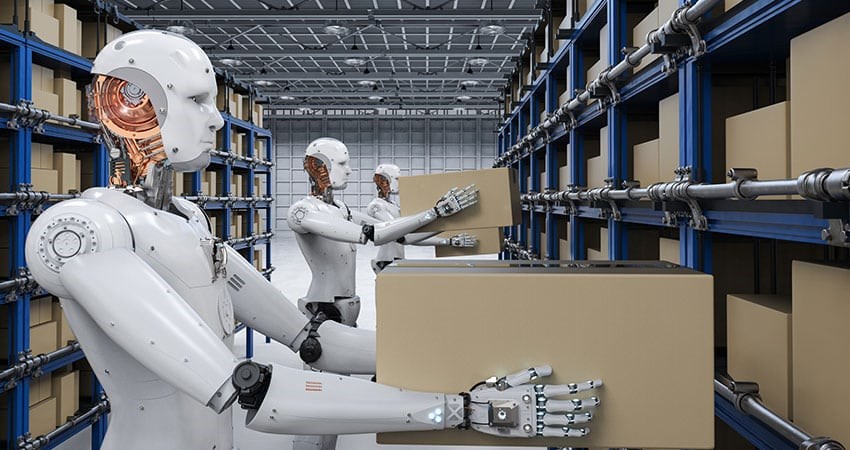As the COVID-19 epidemic ravages our global economy, it’s becoming clearer by the day that the world of work will not survive in the form we once knew it.
No doubt some types of employment will morph into variants not greatly different than before. Tasks built around the telephone or Internet can be carried out from home. We’re already seeing that, though even here the social isolation involved will impose psychological harm.
But the broader danger is that firms (and governments) are going to find that humans are more readily replaceable than was thought.
It’s true that during previous recessions, some jobs were lost that were never recovered, as were some lines of business. Yet new opportunities always sprang up to fill the gap.
This time might be different. Machine learning, artificial intelligence and the rise of robotics all offer alternatives to human employment that in many respects are more efficient.
This is the longer-term threat that COVID poses. Just as the virus is laying off millions, new technologies are arriving that can take over their jobs.
A recent study by the McKinsey Global Institute found that in the majority of occupations, at least one third of work is automatable. That translates into 800 million jobs, worldwide, 70 million of them in the U.S., and around eight million in Canada.
The study predicted these losses would occur by the year 2030. And that was before the COVID outbreak encouraged employers to accelerate the process.
A clarification: The suggestion is not that jobs won’t be needed in the world of the future. The suggestion is that humans may not be hired to do them.
Some examples. Plans are underway to build a truck highway from Mexico to Canada reserved entirely for automated vehicles.
The benefits, monetarily speaking, are self-evident. By law, truckers of the human variety are required to take an eight-hour break each day in the U.S., and a 10-hour log-off in Canada. Robots don’t need breaks, don’t fall asleep at the wheel, and don’t get COVID.
Automated check-out lanes are already taking jobs from employees in our stores. And once virtual education replaces the real version, why do we need teachers and professors?
If computers can beat grand masters at chess, and compose music indistinguishable from the “real thing”, I’m pretty sure they can teach algebra.
Now it might be thought, no problem. The automation revolution will grow the world’s economy just as the Industrial Revolution did, and there will be new jobs for all.
But not according to that McKinsey study, which found that while 365 million new jobs will indeed be created, this is less than half the number required to replace those lost.
And again, this was before the COVID outbreak brought home the relative fragility of human labour.
What then is to be done? It has been proposed that governments offer laid-off workers a wage to get by on. In effect, they get paid for staying home.
No doubt there are some among us who would seize the opportunity to broaden their minds, perhaps by taking up art or music.
Yet there is a ton of research showing that people need to be gainfully employed, and not just as a source of income. They develop friendships at work, gain a sense of purpose, and most important, self-reliance.
An Australian study showed that employed people generally enjoy better mental health. It also found that job loss in middle age is particularly destructive.
In short, while paying people not to work is better than letting them starve, it is not a humane solution. Nor is it, financially speaking, a practical model for underdeveloped countries where many of world’s automatable chores are concentrated.
The only feasible option I can see is to entrench the right to work as one of humanity’s basic entitlements. This is the new civil rights issue of our time.
No easy task. Employers will resist, although there’s some history here.
When the Industrial Revolution reached its peak, factory conditions were abysmal. Long hours, dangerous and unshielded machinery, life destroying contaminants, child labour.
But this led to a series of workplace regulations that forced corporations to clean up their act, though they kicked and screamed.
Admittedly it would take an international effort to enforce a right to work. Any country that went it alone would simply lose jobs as employers moved to less enlightened jurisdictions.
Yet what alternative do we have? Job killing must be placed on a similar footing with other evils of the day.
And when better to begin this campaign, as COVID hammers employment? The enemy is already at the gate.



